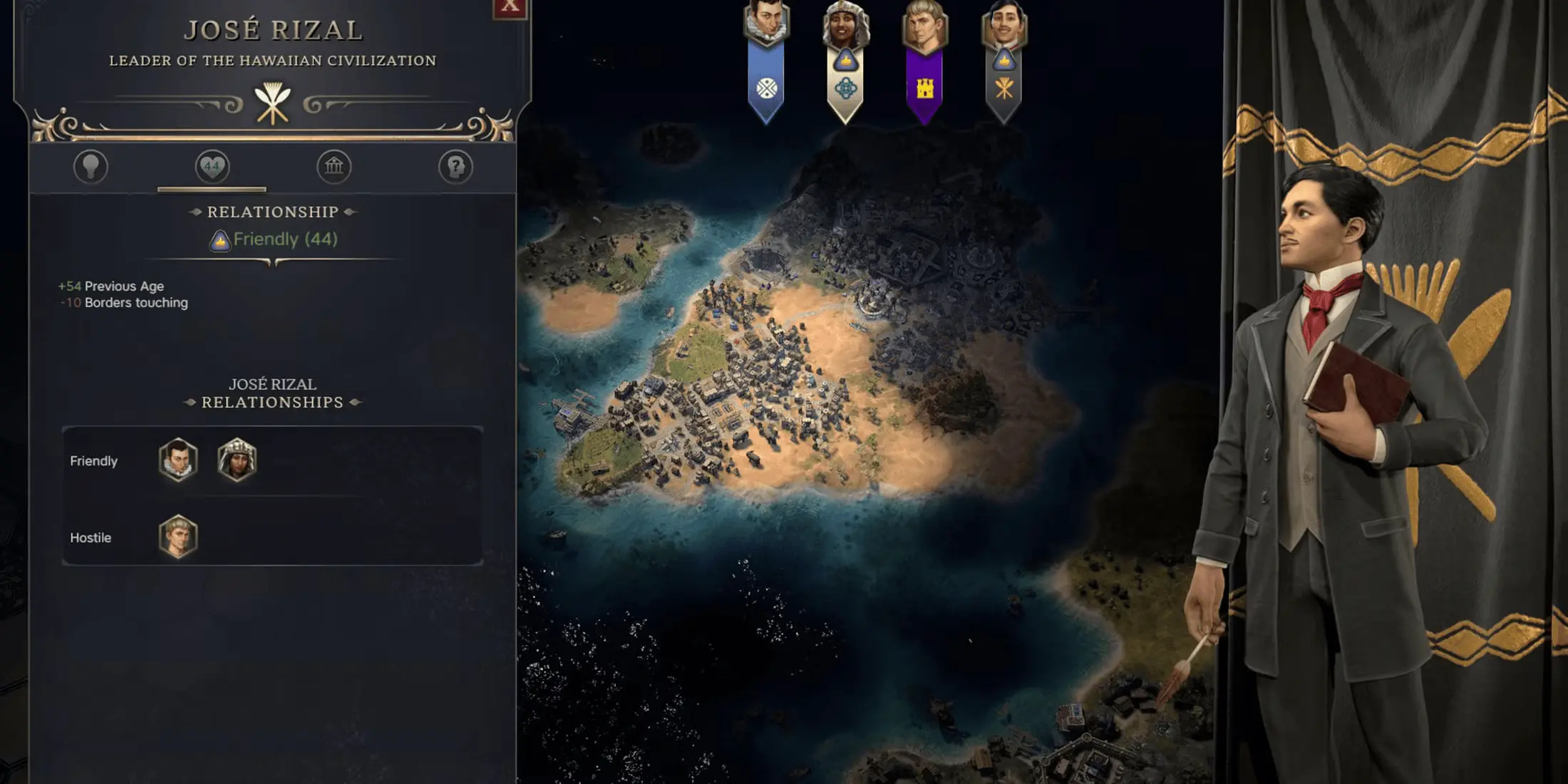crypto
hardcoreStake – official betting partner of Vitality

crypto
hardcoreStake – official betting partner of Vitality
Team up with
the champions! Stake – official betting partner of Vitality

Diplomacy has always been a defining element of the Civilization franchise, and in Civilization 7, alliances have become even more strategically significant. Forming alliances with other civilizations provides strategic advantages—from entering into mutual defense pacts to strengthening trade routes and enhancing cultural ties.
However, alliances don't come easily—you'll have to build relationships with world leaders and make careful decisions to maintain these alliances. This guide explores all the nuances of creating and maintaining alliances in Civ 7.

Alliances in Civ 7 are not just friendly agreements but the foundation of a long-term diplomatic and strategic game. Entering into an alliance facilitates cooperation between civilizations, offering significant advantages that can greatly impact the outcome of the game.
Allies cannot sanction each other, which means no economic penalties between them. However, espionage remains possible, and even allies can conduct secret operations against each other. Allies also cannot denounce each other, creating stable relations without sudden diplomatic conflicts.

One of the most useful benefits of an alliance is the automatic opening of borders, allowing units to freely move through an ally's territory without spending influence points. This is particularly beneficial for trade routes, military strategy, and exploration. Additionally, certain policies and leader attributes provide additional bonuses with active alliances, making them even more advantageous.

The most critical aspect of an alliance is its military influence. If one of the allied civilizations is targeted for war, the other ally is obliged to join the conflict. This makes alliances a powerful deterrent against aggressors and ensures collective security. However, be prepared to fulfill your obligations, as refusing to join a war will lead to the immediate dissolution of the alliance.
When your relationship level reaches 90, the "Form Alliance" option becomes available. Go to the diplomacy menu ➨ select the leader with whom you want to form an alliance ➨ click the corresponding button. In most cases, if the trust level requirement is met, the leader will agree.
Leaders may also propose an alliance if your relationship level reaches the necessary threshold. You can accept or decline the proposal, but an unfounded refusal may lead to a reduction in the trust level.

Alliances in Civilization 7 are not permanent and require ongoing interaction to sustain. If you go too long without diplomatic actions with an ally, the alliance may fade over time. To avoid this, regularly interact with allies through trade, border agreements, and cultural celebrations.


Alliances are not just a formal agreement between leaders. They provide significant advantages that can substantially shift the balance of power in your favor. The main advantages of alliances:
1. Absence of sanctions and denunciations – Allies cannot impose economic sanctions against each other, promoting stability. However, espionage between allies remains possible, so caution is advised.
2. Automatic open borders policy – Allies can freely move through each other's territories without the need to spend influence points. This facilitates trade, exploration of new lands, and the movement of military units.

3. Mutual military protection – If an ally is attacked, you are obligated to join the war on their side. Similarly, if you declare war on another civilization, your ally is expected to support you. This acts as an important deterrent against aggressive opponents.
4. Enhanced policies and attributes – Some policies and unique leader traits provide additional bonuses in the case of an active alliance, such as economic growth, accelerated technological development, or improved troop coordination.
5. Diplomatic trust and stability – An alliance demonstrates long-term diplomatic cooperation, deterring other civilizations from attempting to undermine your influence through military or economic means.

Before forming an alliance, you need to establish contact with other leaders on the map. Leaders naturally present themselves to you as you explore the map, but actively discovering new territories significantly accelerates this process.

The best way to find other leaders is to use scouts during the Ancient Era or naval units in the Exploration Era to uncover new sections of the map. By discovering new territories, you locate continents, settlements, and cities of other civilizations. When you meet a new leader, the game allows you to greet them either friendly or hostile. Choosing a diplomatic approach automatically improves the starting relationship level, substantially simplifying subsequent alliance formation.
By the end of the game, if a major part of the map is open, you should have met all the leaders. At any given time, you can check your relationships with each of them by selecting the leader’s portrait in the upper right corner of the screen.

Simply meeting a civilization is not enough to propose an alliance. First, you need to establish strong relations with the leader. Here's what's required for this:
Achieve a high level of trust | To propose an alliance, your relationship level with the leader must reach 90 or above. This indicates that they consider you a reliable ally. |
Avoid negative interactions | Founding cities too close to another civilization's capital, open denunciation, or espionage can negatively affect relationships. Pay attention to the leader’s diplomatic agenda and avoid actions that may annoy them. |
Engage in regular diplomacy | If you do not maintain active diplomatic contacts, the relationship level may gradually decline. It is important to frequently interact with the leader through trade, cultural events, and open dialogue. |
Once the relationship level reaches 90, you can propose an alliance through the diplomatic menu. If the leader accepts your offer, the alliance will be formed, and you will reap all its benefits.

Alliances are not given automatically—they require trust and effort. In Civilization 7, a leader must have at least a relationship level of 90 before you can propose an alliance.
You can increase this level through various diplomatic actions. The most effective ways to improve relationships with other leaders:

Despite the advantages, alliances also have obligations. The most important is the duty to join an ally's military actions. If an ally declares war on another civilization, you must support them. Refusal automatically breaks the alliance and can lead to a significant reduction in diplomatic relations.
An alliance can also cease due to prolonged inactivity. If you don't interact with an ally for a long time, relations can deteriorate, leading to automatic dissolution.
If you decide that an alliance is no longer beneficial, you can break it. However, you should consider potential consequences, especially if the former ally has a strong army or strategic advantage.
No comments yet! Be the first one to react